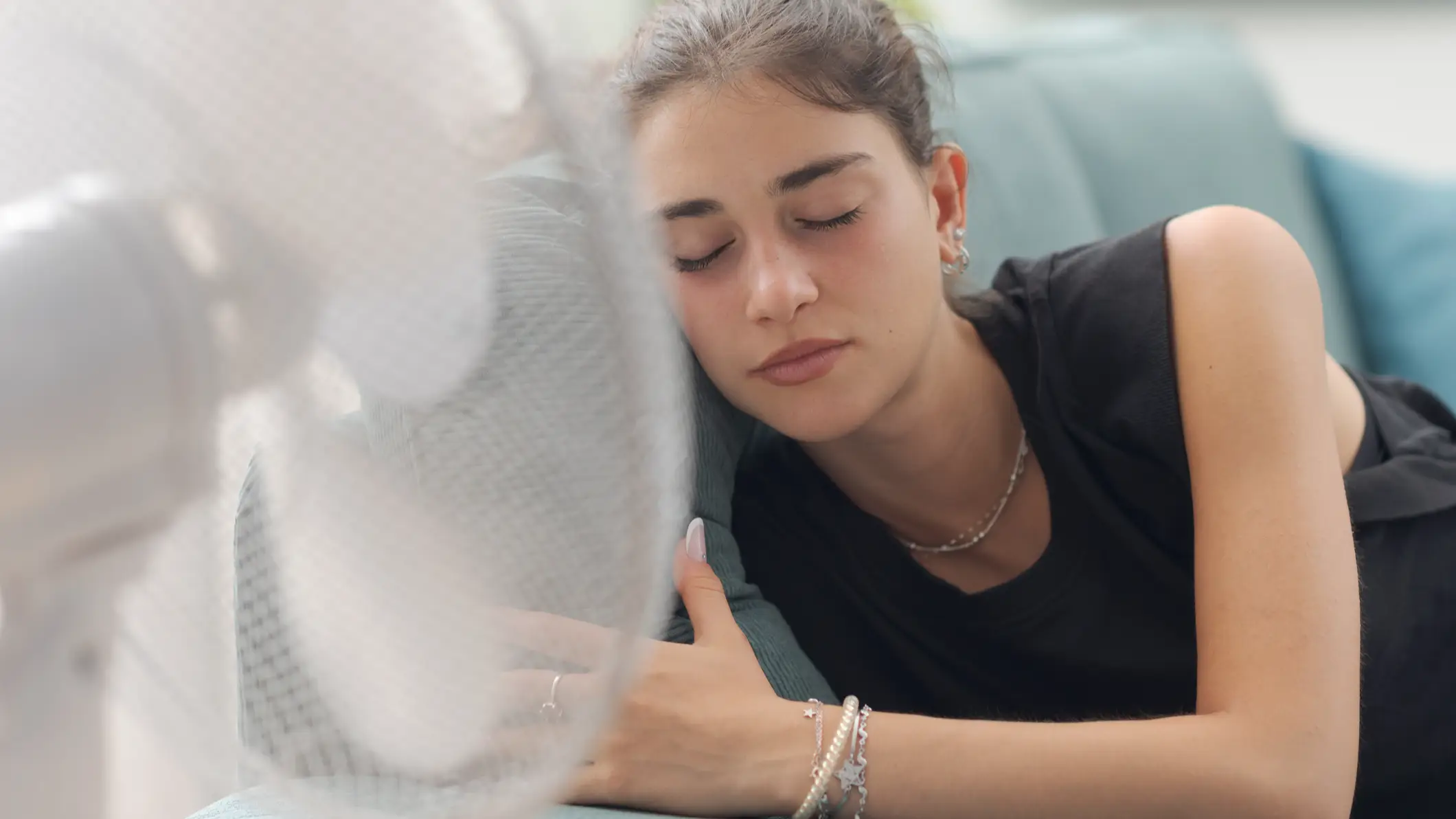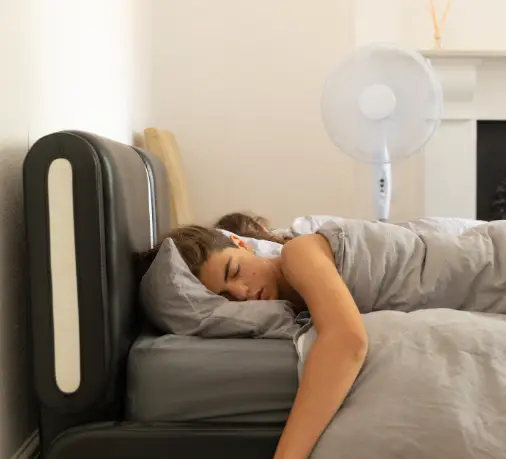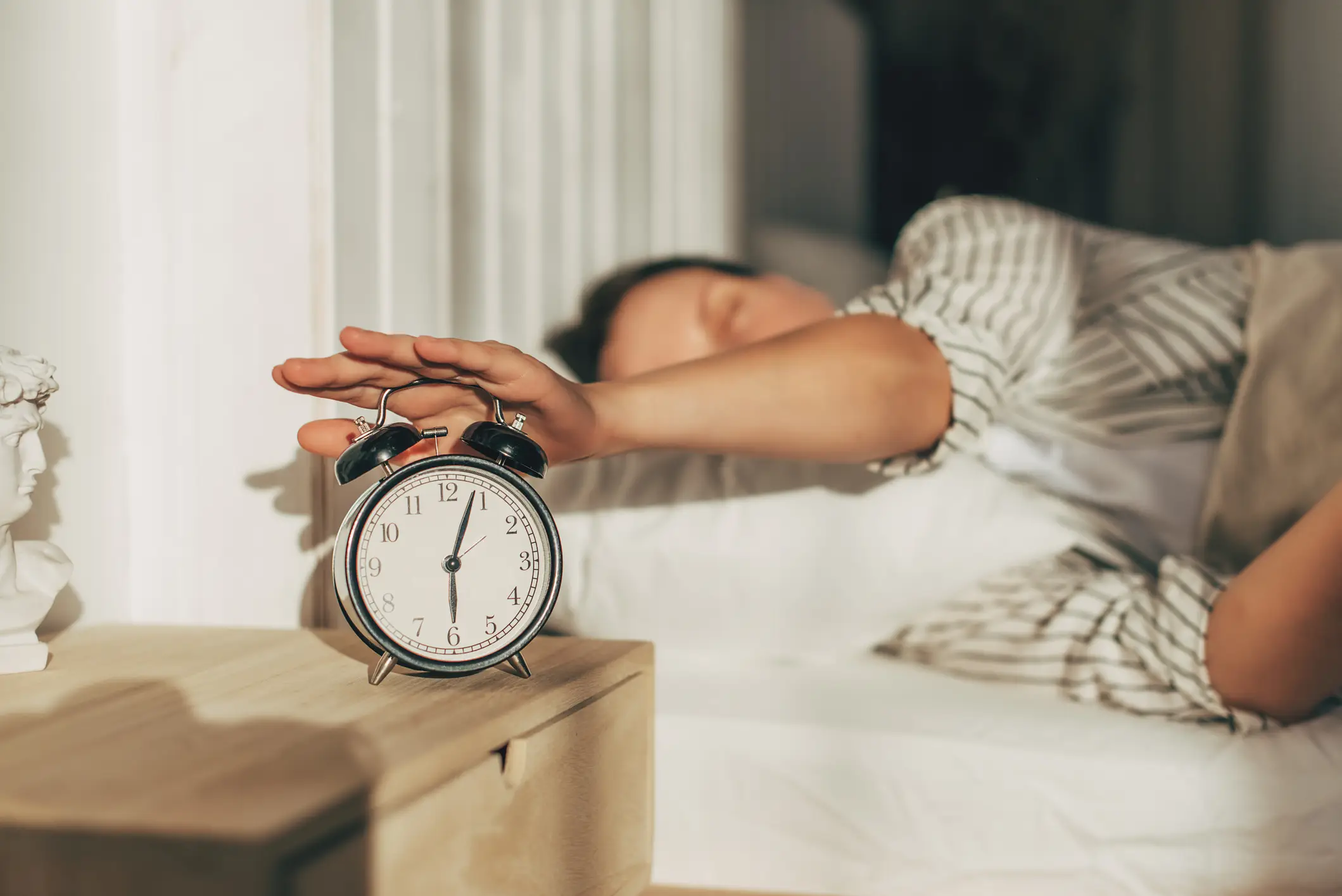
As the UK experiences an unexpected heatwave, you may be tempted to keep the fan cranking all night – you might want to think twice.
The sun feels delightful when out and about during the daytime, but as we all know, trying to sleep in the heat is a lot less fun.
Sure, leaving the fan on all night can feel like the only way to survive those sticky and sweaty nights as the weather heats up. But before you get too cosy with your fan on full blast tonight, there’s a reason why you may decide to unplug your whirring breeze machine.

Advert
This is because a doctor has warned against having your own personal wind machine during the current bout of hot weather, suggesting that people with allergies could wake up feeling groggy.
“Running a bedroom fan all night can create hidden stress on the body,” says Dr Naheed Ali, MD, PhD health expert, physician, and senior contributor at Vera Clinic. “The fan cools the skin by speeding up evaporation, and that steady airflow can leave the nasal passages and throat uncomfortably dry by morning.
"A dry airway produces thicker mucus, which can trap allergens and irritants close to sensitive tissue. Over time, this may trigger coughing, a scratchy voice, or clogged sinuses that linger through the day.
“Continuous airflow also stirs up dust from bedding and flooring. Tiny particles of lint, dander, and pollen stay in motion and may reach deeper into the airways while you sleep. People with asthma or mild allergies often wake with extra chest tightness or sneezing after a night with the fan on.

“Cool air against muscles and joints for seven or eight hours can cause a subtle drop in tissue temperature. Stiff necks and aching shoulders on waking are common signs.
"The chilled muscles tighten as a natural defence, and that tension may persist until a warm shower or gentle stretching restores normal blood flow.”
Dr Ali has offered an alternative. Speaking to LADbible, Dr. Ali said: "If a fan is the only way to keep the room comfortable, place it on a timer that shuts off after the first sleep cycle of ninety minutes. Direct the airflow toward an opposite wall rather than straight at the bed, and keep a glass of water at the bedside to sip if the mouth feels dry.
"Replacing bedroom filters and washing sheets weekly will reduce airborne dust. These small adjustments let the fan cool the room without increasing discomfort in the airways or joints during the full night.”
Try to have a good night’s sleep!
